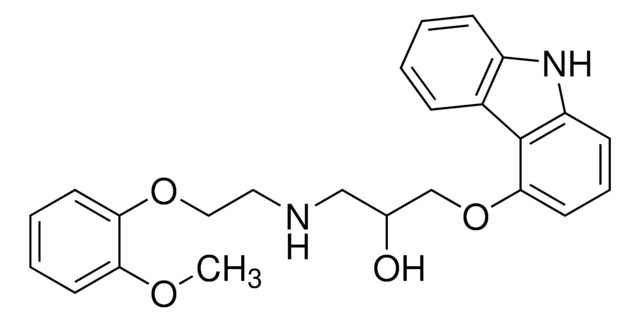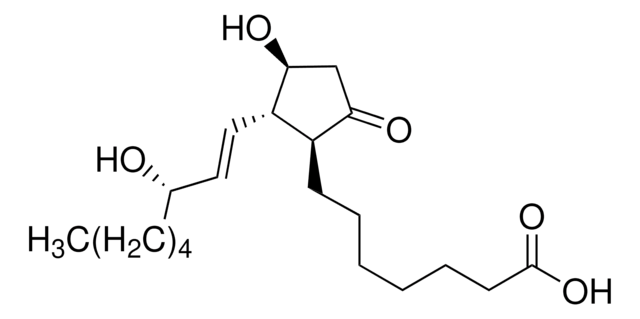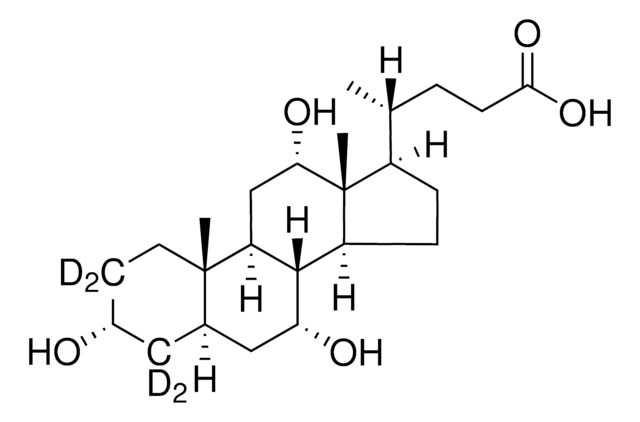SMB00929
5′-Hydroxy carvedilol
≥95% (HPLC)
Synonym(s):
5′-Hydroxy carvedilol, 3-[2-[[3-(9H-Carbazol-4-yloxy)-2-hydroxypropyl]amino]ethoxy]-4-methoxyphenol, 5′-Hydroxyphenyl carvedilol, 5′-Hydroxyphenylcarvedilol, 5′-OH carvedilol, 5-Hydroxycarvedilol, 5OHC, BM-140830, Carvedilol metabolite M5
About This Item
Recommended Products
Quality Level
Assay
≥95% (HPLC)
form
solid
color
off-white
solubility
DMSO: soluble, clear, colorless
storage temp.
2-8°C
InChI
1S/C24H26N2O5/c1-29-21-10-9-16(27)13-23(21)30-12-11-25-14-17(28)15-31-22-8-4-7-20-24(22)18-5-2-3-6-19(18)26-20/h2-10,13,17,25-28H,11-12,14-15H2,1H3
InChI key
PVUVZUBTCLBJMT-UHFFFAOYSA-N
General description
Other Notes
Signal Word
Warning
Hazard Statements
Precautionary Statements
Hazard Classifications
Aquatic Chronic 2 - STOT RE 2
Target Organs
Liver,spleen,Adrenal gland,Uterus (including cervix)
Storage Class Code
11 - Combustible Solids
WGK
WGK 3
Flash Point(F)
Not applicable
Flash Point(C)
Not applicable
Choose from one of the most recent versions:
Certificates of Analysis (COA)
Don't see the Right Version?
If you require a particular version, you can look up a specific certificate by the Lot or Batch number.
Already Own This Product?
Find documentation for the products that you have recently purchased in the Document Library.
Our team of scientists has experience in all areas of research including Life Science, Material Science, Chemical Synthesis, Chromatography, Analytical and many others.
Contact Technical Service









